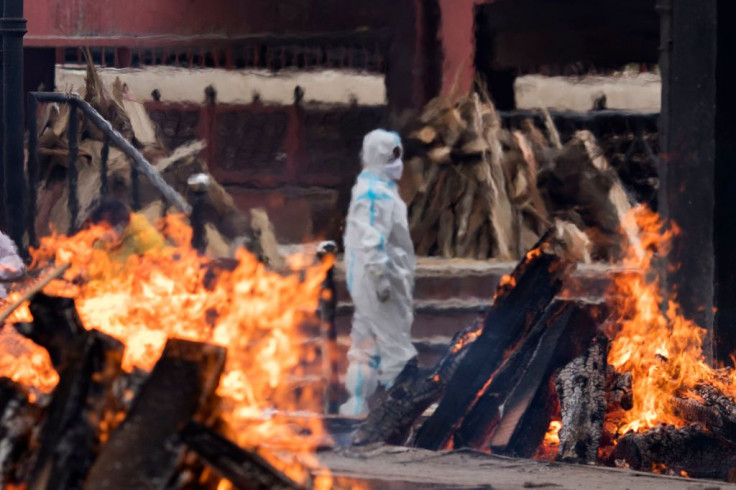A garden built of the ashes of 6,000 Covid victims has been welcomed as a green way to remember those who died in India's second wave.
The Bhadbhada Vishram Ghat crematorium in Bhopal swiftly got inundated with urns as it began burning 100 to 150 people every day at the height of the country's outbreak.
Family members did not collect most of the ashes, leaving manager Mamtesh Sharma, 51, anxious about space.
The traditional course of action in Hindu tradition would have been to bury them in the nearby Narmada river as part of a cremation process.
On the other hand, Sharma did not want to pollute the rivers with such a large amount of ash all at once.
During 90 days from March 15 to June 15, they cremated thousands of remains at Bhadbhada Vishram Ghat with strict adherence to the COVID-19 standards. Sharma said per news agency PTI (via NDTV ) that most of the family members gathered the bones but left the ashes due to coronavirus-induced constraints.
As a result, 21 truckloads of cremated remains were left at the crematorium. The ashes were challenging to release into the Narmada river, and it was not environmentally friendly. This could have contaminated the river. As a result, we decided to create a park out of the ashes, he explained.
"At the height of the second wave after we had been burning 100 to 150 bodies a day, we had to keep making space," he told South China Morning Post.
"We added more and more lockers in which we keep the urns. Once we made space for 500 lockers. Then we added another locker room. Now there isn't any space left but we need space for other cremations.
Instead, Sharma came up with the idea of mixing the ashes with dirt, sand, wood sawdust, and cow dung and spreading them on a 12,000 square foot wasteland nearby."
The area has now been turned into a memorial park where people can pay their respects to those who have passed away.
Hindu priests performed prayers and hung orange marigolds over several of the urns last week before burying the ashes.
Hundreds of saplings will be planted in the near future using the Japanese Miyawaki technique, which involves sowing seeds very close together to form dense woodlands.
Many local residents have contacted Sharma to offer their assistance in planting the seedlings in the coming months, according to Sharma.
He hopes that the park will serve as a tranquil space for visitors to reflect on the last year and pay their condolences to the deceased.
It follows the country's disastrous second wave, which compelled families to execute hurried and inhumane final rituals for their loved ones.
India had 400,000 infections per day and almost 4,000 deaths per day at its height.

© 2025 Latin Times. All rights reserved. Do not reproduce without permission.






